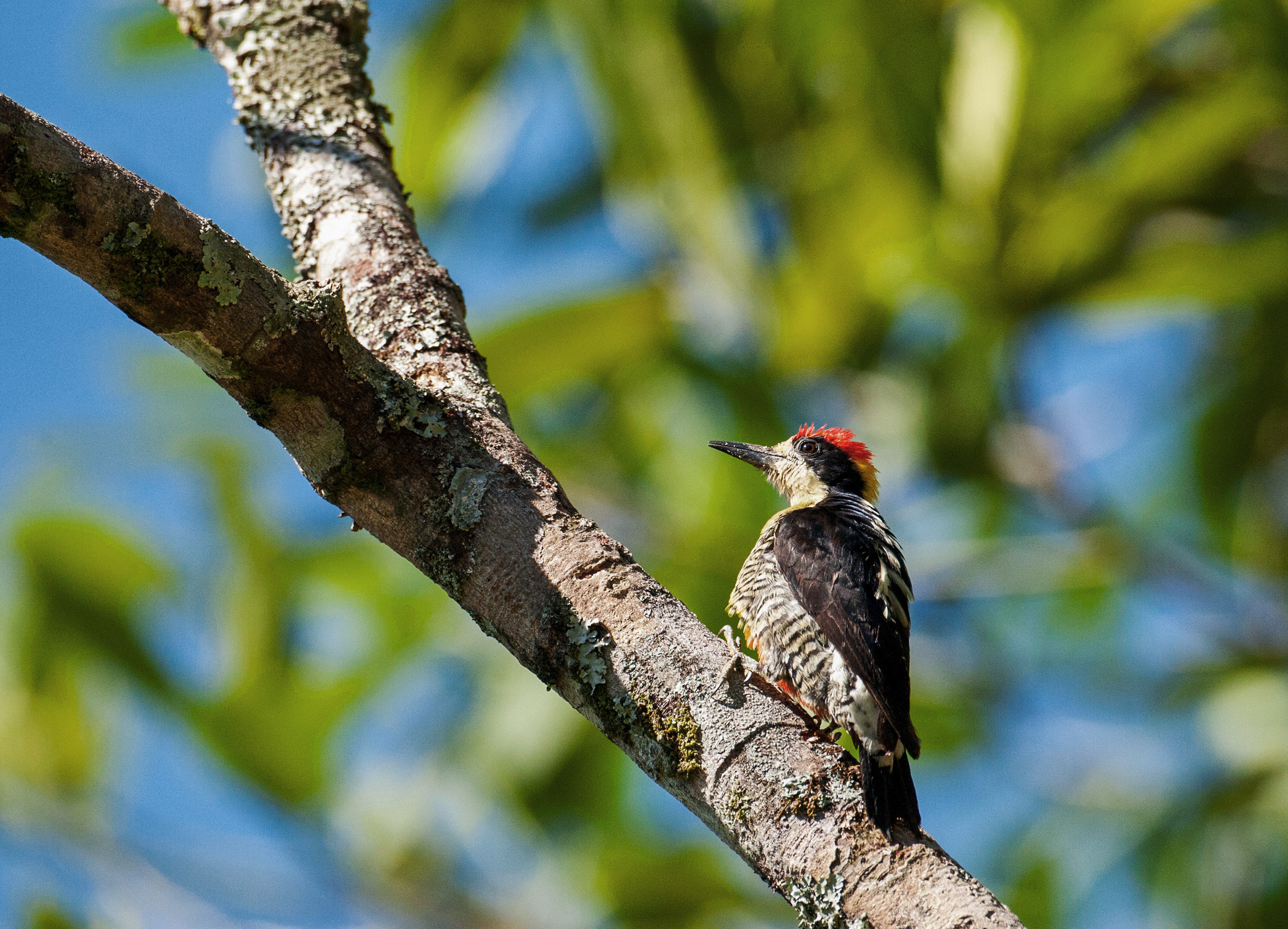In Colombia, as in any coffee-producing country, coffee farming can cause significant environmental harm. Coffee-growing is linked to deforestation, contamination of soil and water, soil erosion, and greenhouse gas emissions. However, the adoption of sustainable coffee production methods offers potential to mitigate these problems. Sustainable methods of agriculture may even provide net benefits to the environment by reducing carbon emissions, maintaining tree cover, and protecting threatened species, including some that are unique to Colombia (Equal Exchange 2010).
 The aptly named Beautiful Woodpecker, endemic to the Magdalena River valley in north-central Colombia
The aptly named Beautiful Woodpecker, endemic to the Magdalena River valley in north-central Colombia
A major challenge to making Colombian coffee production more sustainable involves the careful use of water: reducing water usage and managing wastewater that results from coffee processing. Since the vast majority of Colombian coffee is washed, traditional processing uses vast amounts of water. Left untreated, the waste from coffee production can contaminate groundwater and streams, devastating aquatic ecosystems through a process called eutrophication.
Cenicafé has devoted considerable resources to developing methods to reduce the amount of water used in coffee production. The organisation’s extensive guide to ecological coffee processing emphasises methods to minimise water use, including the use of mechanical demucilagers in lieu of the water-intensive fermentation and washing steps (Roa et al 2011).
Cenicafé’s research shows that this practice can increase consistency and has no negative effect on the cup score in commercial coffees. Nonetheless, specialty producers have not widely adopted the method because of the importance of fermentation for developing a coffee’s flavour. Instead of eliminating the fermentation step, most specialty producers focus on reducing the environmental impact of processing by minimising the amount of water used in pulping and washing and by treating pulp, mucilage, and wastewater before releasing it into the environment.
A pilot scheme in Tolima revealed that biogas digesters have the potential to reduce emissions from coffee-processing waste while generating usable fuel. The use of biogas instead of wood as fuel in cooking or mechanical dryers can help prevent deforestation and reduce farmers’ exposure to wood smoke (Presta-Novello et al 2023).